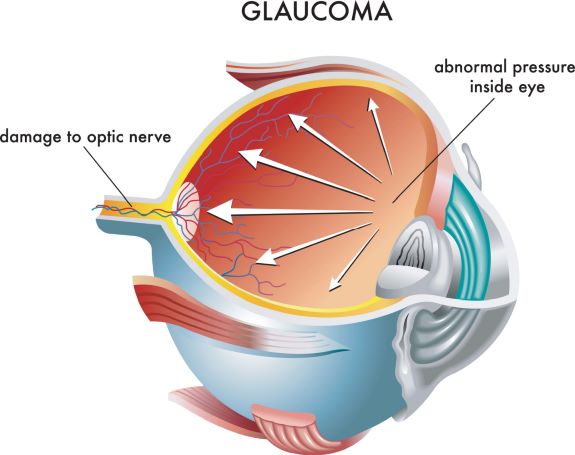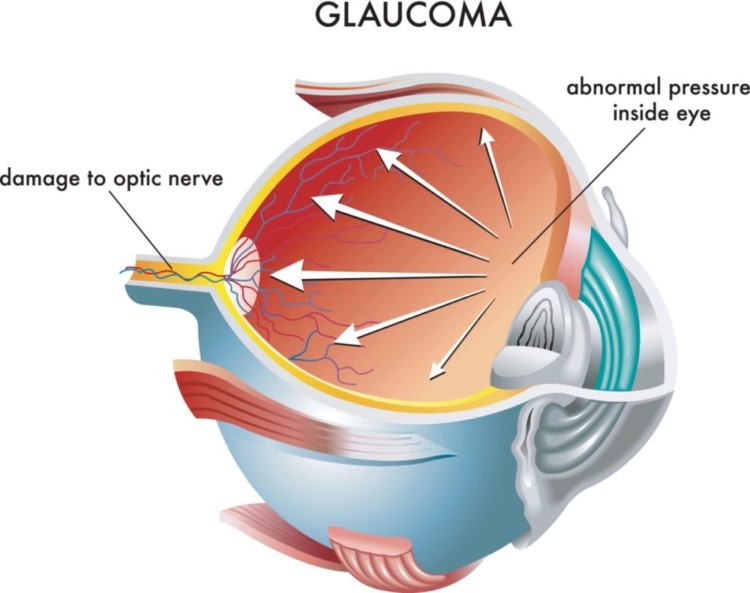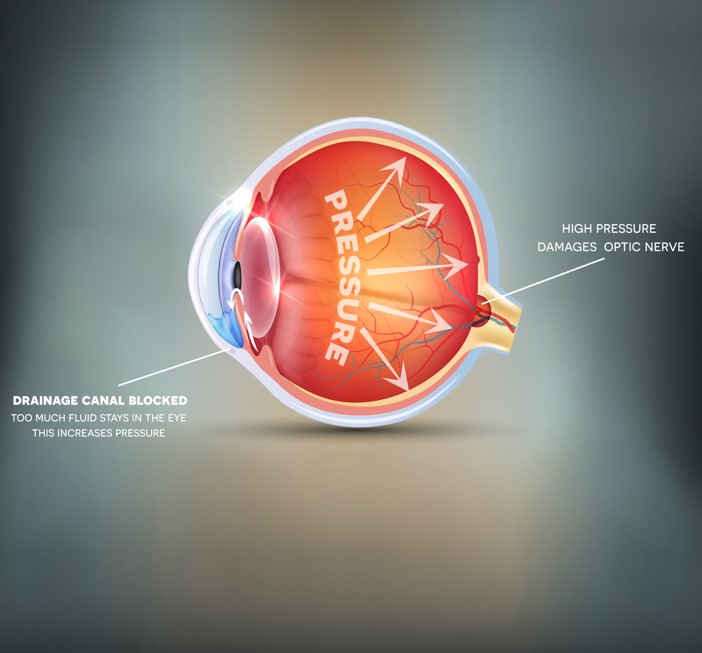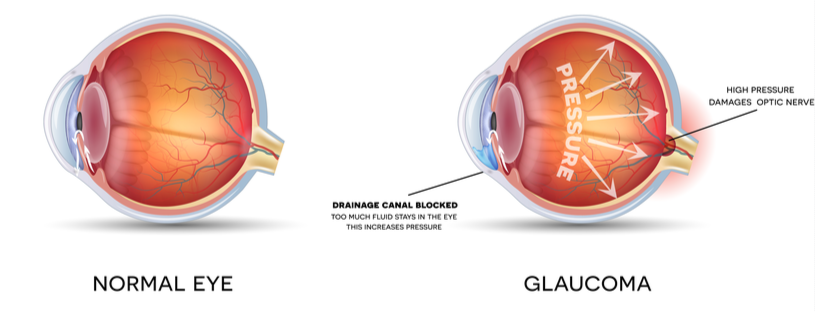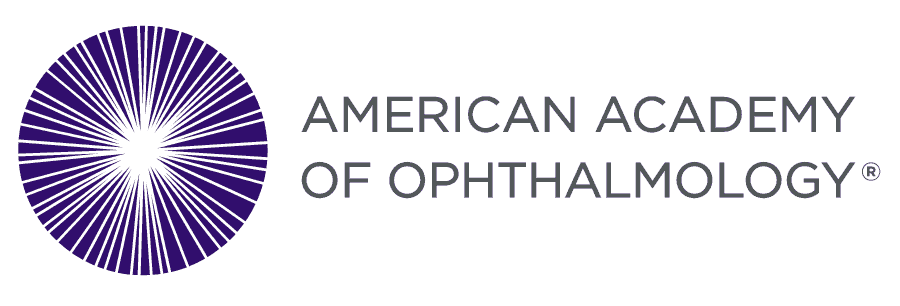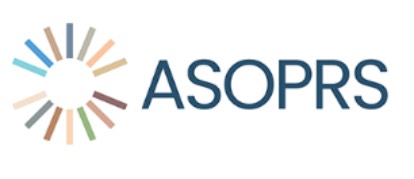When the pressure in our eyes is higher than normal the condition is called ocular hypertension and the patient is considered a glaucoma suspect. If this is left untreated some people can progress to actual glaucoma and vision loss. Over the age of 40 there is a 5 — 10% chance of having ocular hypertension.
How Do I Know If I Have Ocular Hypertension?
The only way to know if someone has ocular hypertension is by doing a comprehensive eye exam. There are no outwardly visible signs of this condition that would bring a patient in to see an eye doctor. The doctor will measure your IOP (intraocular pressure) and see where it falls in the normal range of eye pressure which is typically from 12-21mmHg.
If a persons IOP measures over 21 mmHg and there is no optic nerve damage, then this may signify ocular hypertension. When eye pressure is high there will be too much pressure building in the eye which can cause optic nerve damage. If there is visual field loss associated with high IOP and changes in the optic nerve appearance then this patient has already advanced to having glaucoma.
Causes Of Ocular Hypertension
Ocular hypertension can be caused by numerous scenarios. Sometimes there is too much aqueous formation. The aqueous is the fluid that is produced in our eye that fills the front chamber of our eyes. The aqueous drains through a mesh-work between our cornea and iris so if too much aqueous is produced our eye pressure increases. If poor drainage of the aqueous is occurring this will also cause an increase in IOP.
Trauma to the eye affecting either the structures involved in drainage or production of the aqueous fluid can result in increased ocular pressure.
Race, age and family history plays a role as well. African Americans, people over the age 0 and those with a family history of glaucoma all have increased risk. If a patient has thinner cornea they can be at a greater risk of hypertension and glaucoma.
Prevention And Treatment Of Ocular Hypertension
When an eye doctor discovers ocular hypertension or diagnoses a patient as a glaucoma suspect then typically eye drops are used to reduce the eye pressure.
Ocular hypertension can lead to glaucoma so your eye doctor will have to monitor your IOP regularly and check to see that the optic nerve does not develop any damage. Visual field tests will be done regularly to monitor the health of the optic nerve as well as using the OCT nerve scanner for a cross section of the optic nerve itself.
Since ocular hypertension and being a glaucoma suspect increases your risk of glaucoma the condition has to be monitored carefully by your eye care professionals.

